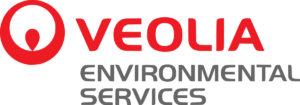VALORIZATION OF WASTE
Veolia facility, commissioned in 2002 and refurbished in 2008, is a modern ‘encapsulated’ bio-‐waste processing plant that converts waste to biogas and soil amendments (compost). The facility receives waste from two counties, viz.
Bad Kreuznach and Birkenfeld. Received bio-‐ waste at the plant is pre-‐treated (principally; comminution, removal of metals and other contaminants and sieving) and subsequently 75% of the feedstock is fed to the fermenter/reactor (plug-‐flow type) for biogas production through dry fermentation. The balance of the feedstock is used for compost production, which is usually mixed with the dewatered press cake of biogas production.
Biogas and completely hygienised compost leave the plants whereas the exhaust of the plant is passed through a humidifier and a bio-‐ filter in order to scrub the ‘foul’ constituents.
KEY FEATURES
- Separately collected organic household and food industry waste and greenery waste is used as the raw material that amounts to ca. 24,500 tonnes per year
- 75% of the pre-‐treated bio-‐waste is fed to the 1,500m3 fermenter (18 kt/a) and produces 1.4 – 1.8 million m3 of biogas per annum (80-‐100 Nm3/tonne FM)
- Ca. 2,700 tonnes of solid compost and ca. 10,000 tonnes of liquid fertilizer is produced per annum and sold as certified (RAL/GZ251) organic fertilizer for agriculture, special crops (such as wine, fruits, and asparagus) and gardening


